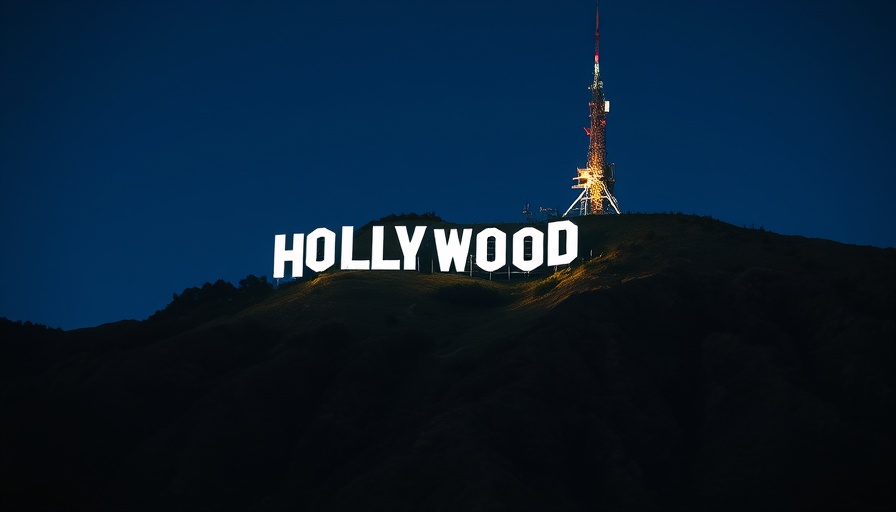
Trump's Bold Move: Tariffs on Foreign Films
In a striking declaration that could redefine the landscape of U.S. entertainment and trade, former President Donald Trump has announced plans to impose a staggering 100% tariff on films produced abroad. This controversial strategy, aimed at bolstering American industries in the face of globalization, has sparked debates about its potential repercussions across various sectors, including the burgeoning tech and entertainment industries in the Bay Area.
Why Tariffs on Movies Matter
Trump's focus on films comes at a time when the U.S. film industry is stretched between the allure of international markets and local production. While many view it as a way to protect American jobs, the cultural implications of such a decision could be significant. This unexpected shift invites questions about creative freedoms, artistic exchange, and the overall landscape of media consumption in a rapidly changing world.
The Trade Impact: Local Businesses and Beyond
For Bay Area entrepreneurs and startups, this tariff could signal a seismic shift in business operations and opportunities. Local production companies that thrive on a mix of international partnerships may feel the strain. Notably, the emerging startups in the Silicon Valley tech scene also depend on collaborative ventures across borders to innovate and grow. As businesses navigate these new waters, the increased costs of importing foreign films could lead to new business trends.
Comparative Perspective: Trump's Tariffs versus Global Trade Policies
Looking at how global trade policies often shape industries worldwide provides valuable context. Countries like China, which have historically used tariffs as levers for economic growth, might see this U.S. tariff as a challenge. The Bay Area tech sector, particularly its focus on innovation and investment in startups, could bear the brunt of uncertain trade relations, highlighting the necessity for corporate leadership to adapt to these changes swiftly.
Opportunities for Growth Amidst Challenges
On the flip side, such dramatic tariffs could also catalyze local growth strategies. With a 100% tariff, local filmmakers might seize the chance to promote domestic productions more aggressively. In a market that continuously favors innovation, this shift could lead to a resurgence of interest in home-grown content, echoing themes of corporate social responsibility and sustainability in business practices.
Influencing the Startup Ecosystem
As Bay Area startups navigate these developing regulations, new ideas surrounding how films are produced could emerge. With venture capital funding increasingly focused on businesses that innovate, this new landscape could present opportunities for creative entrepreneurs. For startups focusing on digital storytelling, the ramifications of film tariffs could inspire pioneering business models that prioritize local content creation.
The Bigger Picture: Economic Forecasts
In terms of economic forecasts, it's essential to recognize this potential shift in the film industry as part of broader trends affecting the Bay Area economy. A possible rise in production costs could also influence employment trends and market dynamics within the local business ecosystem, driving business leaders to adapt or risk falling behind.
Conclusion: Preparing for Change
The proposed 100% tariff on foreign films underscores Donald Trump's commitment to prioritize American jobs and industries but also elicits concern over its challenges and implications. The Bay Area’s business landscape, with its reliance on innovation and collaboration, could face both hurdles and opportunities as these new regulations take shape. Business leaders, entrepreneurs, and investors must stay informed and agile as the impact of these tariffs unfolds, aligning their strategies to navigate this emerging reality, ultimately shaping the future of American business.
 Add Row
Add Row  Add
Add 



Write A Comment